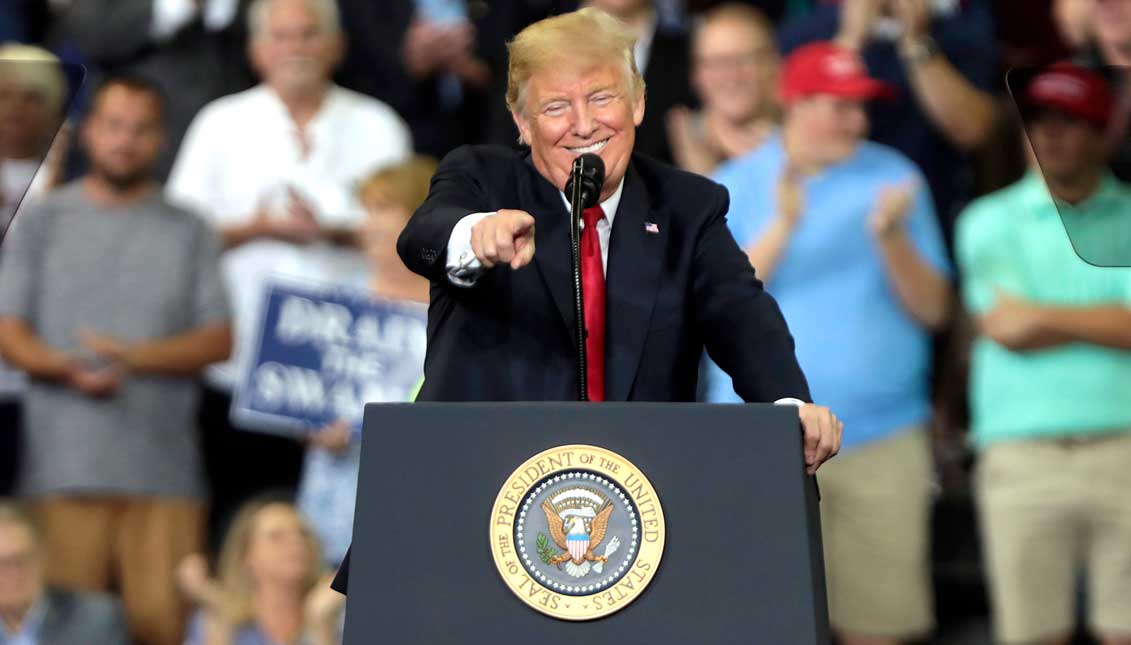
What would the #BlueWave mean for Trump?
The results of the primary elections have shown the rise of the Democratic Party at the national level, especially in the hands of progressive candidates,…
During the past few days, President Donald Trump has released all kinds of threats about the prospect of the Democrats winning the midterm elections in November: "everything we have done will quickly change," "everything will end," "there will be a wave of violence."
The presidential panic is only a symptom of a reality that has been seen in the results of the primaries, where voter participation has increased considerably, especially in favor of the Democratic Party.
According to the Pew Research Center, about 13.6 million people have participated in the elections so far, compared to 7.4 million who had participated at this point during 2014.
"To date, more than 9.9 million people have voted in contested Democratic House primaries," the center explains. "More than twice as many as had voted in such races at this point in 2014 (fewer than 4.3 million). Turnout in contested Republican House primaries has risen too, but again less so than in the Democratic races: an increase of about 1.2 million votes between 2014 (5.7 million) and this year (just under 7 million).”
With this panorama, it’s not hard to anticipate that the Democrats could really win the majority in the House of Representatives this year.
But what would this really mean?
The first thing anyone can think of is the possibility of impeachment, although perhaps what is really possible is for the committees controlled by Democrats in the House to carry out investigations regarding "a wide range of negative stories in Trump's White House," as CNN explains.
RELATED CONTENT
Several officials of the White House and the Republican Party told the news outlet that closed-door discussions in the administration have contemplated this type of scenario, although without taking the possibility of a true impeachment very seriously since the Democratic majority in the Senate is non-existent.
On the contrary, some sources explained that "the expected calls for impeachment and confrontational hearings could galvanize the president's base for the 2020 elections."
According to Anthony Zurcher in his column for the BBC, "the mid-term wave is a recurrent phenomenon in U.S. politics," where "one party picks up a combination of more than 20 seats in the U.S. House of Representatives and the Senate.”
For Zurcher, the result of these elections shows, fundamentally, the popularity of the current president and the approval of his economic measures by the electorate, which in these circumstances seems to put the balance at zero.
However, what would be palpable in the event that Democrats regain control of Congress would be the (almost absolute) blockade of the Republican legislative agenda; GOP legislators will no longer be able to count on their votes to get proposals directly to the Oval Office.
Similarly, and as Vox explains, the president's nominations to positions such as the Supreme Court or his own cabinet could be hampered by the Democratic majority vote, making it almost impossible for the boss to continue doing what he pleases.










LEAVE A COMMENT: